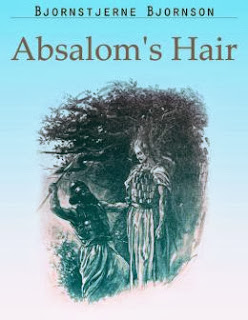CHAPTER 1
Harald Kaas was sixty.
He had given up his free, uncriticised bachelor life; his yacht was no longer seen off the coast in summer; his tours to England and the south had ceased; nay, he was rarely to be found even at his club in Christiania. His gigantic figure was never seen in the doorways; he was failing.
Bandy-legged he had always been, but this defect had increased; his herculean back was rounded, and he stooped a little. His forehead, always of the broadest--no one else's hat would fit him- -was now one of the highest, that is to say, he had lost all his hair, except a ragged lock over each ear and a thin fringe behind. He was beginning also to lose his teeth, which were strong though small, and blackened by tobacco; and now, instead of "deuce take it" he said "deush take it."
He had always held his hands half closed as though grasping something; now they had stiffened so that he could never open them fully. The little finger of his left hand had been bitten off "in gratitude" by an adversary whom he had knocked down: according to Harald's version of the story, he had compelled the fellow to swallow the piece on the spot.
He was fond of caressing the stump, and it often served as an introduction to the history of his exploits, which became greater and greater as he grew older and quieter.
His small sharp eyes were deep set and looked at one with great intensity. There was power in his individuality, and, besides shrewd sense, he possessed a considerable gift for mechanics. His boundless self-esteem was not devoid of greatness, and the emphasis with which both body and soul proclaimed themselves made him one of the originals of the country.
Why was he nothing more?
He lived on his estate, Hellebergene, whose large woods skirted the coast, while numerous leasehold farms lay along the course of the river. At one time this estate had belonged to the Kurt family, and had now come back to them, in so far as that Harald's father, as every one knew, was not a Kaas at all, but a Kurt; it was he who had got the estate together again; a book might be written about the ways and means that he had employed.
The house looked out over a bay studded with islands; farther out were more islands and the open sea. An immensely long building, raised on an old and massive foundation, its eastern wing barely half furnished, the western inhabited by Harald Kaas, who lived his curious life here.
These wings were connected by two covered galleries, one above the other, with stairs at each end.
Curiously enough, these galleries did not face the sea, that is, the south, but the fields and woods to the north. The portion of the house between the two wings was a neutral territory--namely, a large dining-room with a ballroom above it, neither of which was used in later years.
Harald Kaas's suite of rooms was distinguished from without by a mighty elk's head with its enormous antlers, which was set up over the gallery.
In the gallery itself were heads of bear, wolf, fox and lynx, with stuffed birds from land and sea. Skins and guns hung on the walls of the anteroom, the inner rooms were also full of skins and impregnated with the smell of wild animals and tobacco-smoke. Harald himself called it "Man-smell;" no one who had once put his nose inside could ever forget it.
Valuable and beautiful skins hung on the walls and covered the floors; his very bed was nothing else; Harald Kaas lay, and sat, and walked on skins, and each one of them was a welcome subject of conversation, for he had shot and flayed every single animal himself. To be sure, there were those who hinted that most of the skins had been bought from Brand and Company, of Bergen, and that only the stories were shot and flayed at home.
I for my part think that this was an exaggeration; but be that as it may, the effect was equally thrilling when Harald Kaas, seated in his log chair by the fireside, his feet on the bearskin, opened his shirt to show us the scars on his hairy chest (and what scars they were!) which had been made by the bear's teeth, when he had driven his knife, right up to the haft, into the monster's heart. All the queer tankards, and cupboards, and carved chairs listened with their wonted impassiveness.
Harald Kaas was sixty, when, in the month of July, he sailed into the bay accompanied by four ladies whom he had brought from the steamer--an elderly lady and three young ones, all related to him. They were to stay with him until August.

No comments:
Post a Comment